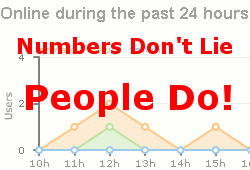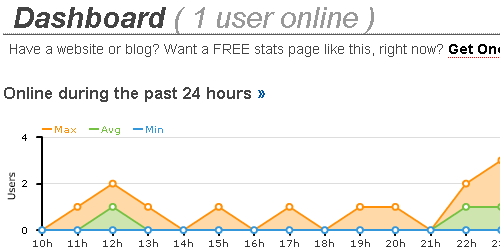
There must be a squillion discussions of SEO versus social media out there on this vast Internet. Many of them are promoting one approach to website marketing, and suggesting that one is more important than the other. What often keeps them at odds is the perspective of the author, but let’s examine the truth of just how much they work in synergy.
A biased “this versus that” view of SEO and social media will often downplay the things that hold these two subjects together inseparably. Each can be used with practicality, and each can be used to create popularity, but let’s take a closer look at their respective roles. I want to use plain and simple logic to suggest ways to balance the two for the benefit of your business.
I could take this thinking tangent in a lot of directions, and for each of them, I could probably find arguments against my own ideas. That doesn’t mean I’m unclear on this, but simply that there are a lot of variables. I’ll save our thinking tangent for your comments and we can build on these thoughts together, but here is what I’m thinking.
In marketing, there are no one-shot miracle bullets to bring down the huge beast that will feed your clan. It takes a combination of many efforts to build a brand and to create a successful online business presence. Two very popular methods for creating success online are SEO (that’s search engine optimization) and social media marketing.
These two tools each have great benefits, but there is often a compromise to be made which favors one or the other. They work in synergy, with each building upon the other, but there is a balancing point. I want you to consider this in terms of SEO being more leveled toward a sales approach, with social media being more geared toward your branding. Of course, they can both produce sales, and they can both produce branding, but just go with this for a moment.
First things first, I want you to consider this simple fact, and I hope it doesn’t shock you. People are selfish. Wait a minute, though … that does not mean they are evil! It is simply to say that people care more about other things than they care about your brand, what you have for sale, or helping you to promote it.
I don’t mean those people out there using social media are all just out to squish your hopes, or that they will not lend you a hand if you ask them nicely. What I mean is simply that people have an instinctive drive to meet their own needs and desires, while your needs and desires probably don’t come at the top of their list.
Give Them Good Reasons to Share
If you don’t provide good reasons that people will want to share what you have to say about your brand or your industry, your social media efforts will lose a lot of their potential impact. Sure, you may have a perfect customer model drawn out, and you may be just certain that you are reaching the right people with your message, but consider this: Reaching the people who reach the people can be far more valuable to your brand. That is “influence marketing” and it is an art of reaching your market through their influencers. It works on the known principle that somebody referring others to your business is better than trying to promote your sales pitch directly to the consumer.
One of the greatest scenarios of social media marketing is when people share your brand message. It can make the marketing value far greater than your own reach or budget would withstand otherwise, but it starts with something much more than a sales pitch.
This sort of “influence marketing” is frequently spread far wider, because it makes use of more than just who you encounter, but also includes who they encounter. I certainly don’t want to give the impression that just because you give them good reasons, that they will use them, or that you will benefit. It just increases the probability, but when it is a hit, it is usually a bigger hit than expected.
Why SEO Allows Stronger Call to Action
People search for things online 24 hours per day, and some of them are shopping. If they search, but you’re not there with your offer to help them, the odds are pretty slim that they will become your customer.
There are many ways to target your market using social media, and it is extremely important. In fact, here is a great example of gathering data and targeting a market using Facebook (see “Facebook Marketing: Pages, Customer Modeling, Promoting, and Awesomeness“). However, you simply cannot downplay the fact that when somebody searches for something on Google, it is based on their intent to find something and not your intent to find them. They are searching for it on their time frame, using their criteria, so if they find you, there is a good chance to make them a customer. Even when it is not a shopping quest, they are clearly interested in the topic of the search or they would not have been searching.
When these same people who search the Internet are using social media, they may be shopping, too. Let’s not count on that, and let’s consider why branding is often a much smarter objective.
Why Social Media Provides Stronger Branding
It is pretty clear that social media asserts a different set of standards to selling. If somebody reads your “buy it right now because you really need this and here’s why ours is the best” statement after searching for it, that’s great! Hopefully you will make it really easy for them to buy it right then.
On the other hand, if they see your pitch in their Facebook, Twitter, or other social media spaces, they may not be put off by it, but they are certainly not as likely to be in the market, currently. Unless it is an impulse buy, or something unique and special, your message will often be better received if it is branding-focused versus being overtly sales oriented. If you want it to be both popular and sales-oriented, you had better plan for there to be something in it for the people … like free money, free food, or something compelling.
The difference between overtly sales-focused efforts and branding is often made obvious by a much softer and customer-oriented approach. That is because, although a strong call-to-action may have good intentions for the customer, branding involves a process of giving people greater reasons to love the company.
In comparison to that SEO pitch I described, try to think of a branding approach more like this: “Yes, we sell that, but let us tell you all the cool stuff you can do with it. If you are looking for one of these, we will be delighted to assist you. Oh, and if you know somebody else looking for one of these, we would love to meet them and we’ll take good care of them.”
Bringing SEO and Social Media Together
Companies implement good SEO to make their website show up higher in search results, and for more search terms. It all makes good sense, and once people find them in a search, it is easier to drive a call to action. You know … giving them good reasons to buy, and asking for the sale.

Social media is a bit trickier in some respects. If you are trying to sell something, it is important to know that if you do it with branding in mind, and make efforts to be useful and interesting, you will find that a lot more people will share your message with others. When they do that, they will share it in the form of links to your website. Those links to your website are what will help the shared content, everything it links to, and the whole website to rank better in search engines. Thus, you get the benefit of both the SEO and the social media.
Many people try hard to make these two things look totally divergent. Some will look at SEO as some kind of technical trickery, like maybe it is all in the website’s source code. In fact, there are many ways people will try to make SEO very confusing when it really isn’t. Yes, it is a very technical trade in many respects, but those who will have you believe that it involves machines more than it involves people are the same kind who will look at my source code to try and figure out my “tricks”. If you have a good sense of humor and are not easily offended, go ahead and look.
Sometimes, in a perfect world, you may find opportunities to strike a good balance by making something both “SEO Practical” and sales-oriented, while still having something useful enough to be “Social Media Popular” and shared by others. Although it is not always possible within the same content, it can happen, and I’ve seen it done. It requires balancing a good amount of usefulness and branding, while also having a strong call to action.
Summing it up: In the spirit of good social media, I hope you found this line of thinking useful. If so, please add your comments and share this article with others. In the spirit of SEO, click here to contact me and hire my services before your competition does. I only have an opening for one new client, so contact me right now, before I am booked solid and you miss the many great opportunities I can create for your company.
You see how that works? It is nice, isn’t it? Now what do you have to say about this?
Photo Credits:
Tightrope by Quinn Dombrowski via Flickr
Barely Balanced by Frank Kovalchek via Flickr
Podcast: Play in new window | Download







